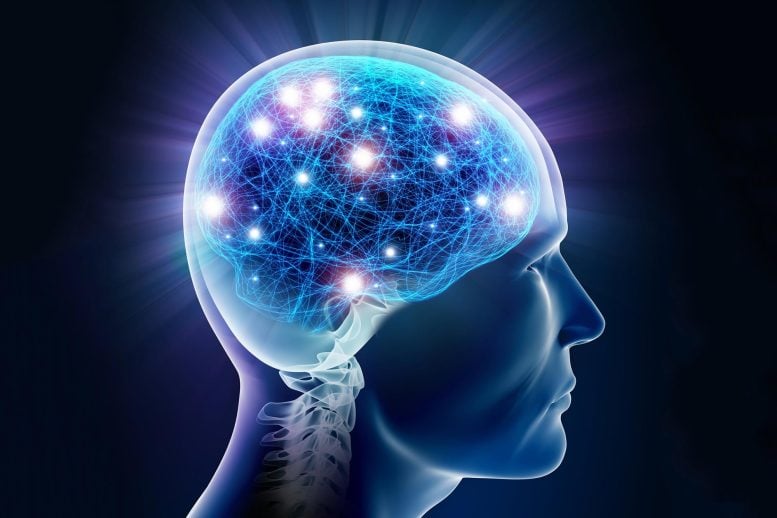
When you think of exercising more, what trade-offs come to mind? A slimmer physique, improved cardiovascular health, maybe even the ability to turn heads in that bathing suit you’ve been dying to get into?
But have you thought about what exercise is doing for your brain?
Numerous studies have proven that exercise, particularly the kind that gets your heart pumping, has a whole host of positive effects on the brain, even to the point of enhancing its structure. Here are just five of the ways exercise improves your already miraculous brain.
1. Exercise Turns Your Brain into a Pleasure Powerhouse
Exercise stimulates a rich concoction of feel-good chemicals in the brain, including dopamine, serotonin, endocannabinoids, and norepinephrine, according to the American Psychological Association (apa.org), each of which has different roles in managing stress, enhancing feelings of wellbeing, and promoting an active interest in life. If that wasn’t enough, exercise increases the number of dopamine receptors in the brain, meaning not only is your brain producing more of these happy chemicals, but it’s also better at enjoying them.
According to the Greater Good Science Center (greatergood.berkeley.edu), exercise is so good at delivering pleasure to the brain that it’s successfully used to help patients suffering from the ravaging aftereffects of drug abuse. Additionally, it’s estimated that we all lose approximately 13 percent of our dopamine receptors each decade, says Greater Good, causing us to experience diminishing pleasure in everyday life as we age. Exercise can reverse this.

2. Exercise Stimulates Neurogenesis
Harvard Health Publishing (health.harvard.edu) reports that exercise sparks neurogenesis, or the formation of new neurons, in the brain. We’re all born with approximately 100 billion neurons in the brain, which regenerate at a fast rate in our childhoods but slow as we mature. It was once thought that this eventually stopped completely, but it’s since been proven that neurogenesis can last a lifetime.
In a study conducted at Massachusetts General Hospital (massgeneral.org), doctors experimented with lab rats to see if medicine could ignite neurogenesis. While it could, the neurons died before they had any potential. But when the rats were put through courses of exercises, not only did neurogenesis take place, the neurons were healthy and strong enough to last.
3. Exercise Improves Memory and Learning
Speaking of neurogenesis, the hippocampus is one area of the brain that continues to create new neurons throughout our lifetimes, says the U.S. Centers for Disease Control and Prevention (cdc.gov). The hippocampus is integral to learning and memory formation. Multiple studies have shown that adults who exercise perform better on memory, learning, and decision-making tasks than their counterparts who don’t exercise.
Exercise is one of the leading forms of therapy for people suffering from age-related dementia and Alzheimer’s, says the APA, because of its documented boost to memory function. In fact, studies have shown that the hippocampus can increase in volume by 1 percent after a year of regular exercise.
4. Exercise Increases the Thickness of the Cerebral Cortex
The cerebral cortex is the outer covering of the largest part of the brain, the cerebrum. The cerebral cortex is associated with high-level, conscious thought patterns, including emotion, evaluation, reasoning, and language. And according to Johns Hopkins Medicine (hopkinsmedicine.org), exercise can thicken the cerebral cortex.
Researchers speculate that some of the reason for this is that exercise, particularly aerobic, involves continually making split-second decisions. If you’re running, you’re always managing your environment so you don’t twist your ankle or tangle with a car. If you’re at the gym, you’re keeping your balance and monitoring your levels of exhaustion and thirst. In other words, your mind is working just as hard as your body is and the result is a thicker, stronger cerebral cortex.
5. Exercise Improves Neuroplasticity
Neuroplasticity is a big word to describe how adaptable the brain is. From birth, the brain is malleable, says Scientific American (scientificamerican.com), able to change both physically and functionally in response to events like learning, new environments, injury, and disease. The greater its neuroplasticity, the better the brain can adjust to life events, from acquiring new job skills to relearning how to walk after an accident.
Even just one workout session can elevate your brain’s neuroplasticity, according to PsyPost (psypost.org). The reasons are currently believed to be because exercise encourages the growth of new neural connections in the brain, and that exercise has a suppressant effect on gamma-Aminobutyric acid, or GABA, which inhibits certain types of neurotransmitters.
Ready to jump into an exercise program now that you know how many positive effects exercise has on the brain? The CDC recommends getting 150 minutes of moderate exercise per week, or 75 minutes of intense exercise, or a combination of both. This should be spread out evenly over the course of the week. Talk with your doctor first to eliminate any concerns and to help create a plan that works best for you.
Never miss a breakthrough: Join the SciTechDaily newsletter.
1 Comment
I ❤️ to riding my statIonery bike!
Thank you!
I knew it’s doing something to my brain!
I have Multiple Sclerosis & don’t experience stuff like other MSers!
I knew it!